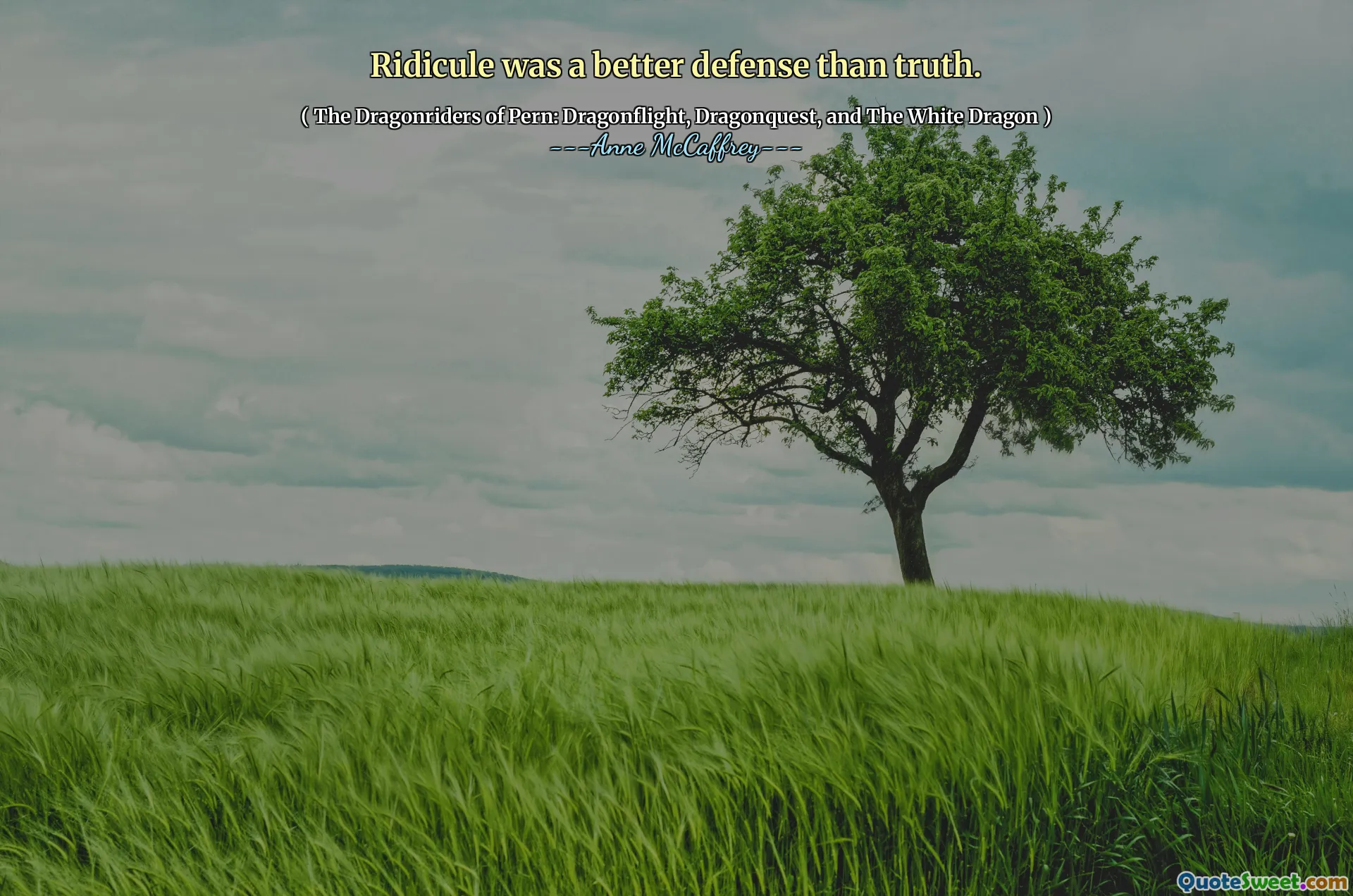
Ridicule was a better defense than truth.
This quote from Anne McCaffrey's work invokes a rather cynical but thought-provoking reality about human interactions and the social dynamics surrounding truth and belief. It highlights how often people resort to ridicule—not based on facts, but as a strategy to defend their opinions or worldviews when confronted with uncomfortable truths or alternative perspectives. Ridicule is an emotional weapon; it evokes laughter, derision, or mockery to disarm serious discussion or critical examination.
In many societal and interpersonal contexts, this approach seems more effective in protecting one's stance than simply presenting the truth, which can be complex, nuanced, or inconvenient. The quote suggests a discomfort with the objective truth in favor of a defense mechanism that is easier and perhaps safer—mockery can silence dissent, create divisions, or undermine credibility without appealing to rational debate or evidence. This speaks to a broader human tendency to prioritize social cohesion and egos over objective reality, leading to environments where ideas aren’t genuinely scrutinized but rather dismissed through ridicule.
Reflecting on it more deeply, it also raises questions about the power of communication and credibility. It challenges readers to consider how truth is received and defended in various spheres—whether in politics, science, or everyday social discourse. It also implicitly critiques environments that value conformity or dogma over transparency, where ridicule can suppress meaningful dialogues. Overall, it encourages mindfulness in how we defend truths and engage with contrasting views, suggesting that genuine understanding and progress require stepping beyond ridicule to embrace honest discourse and empathy.







